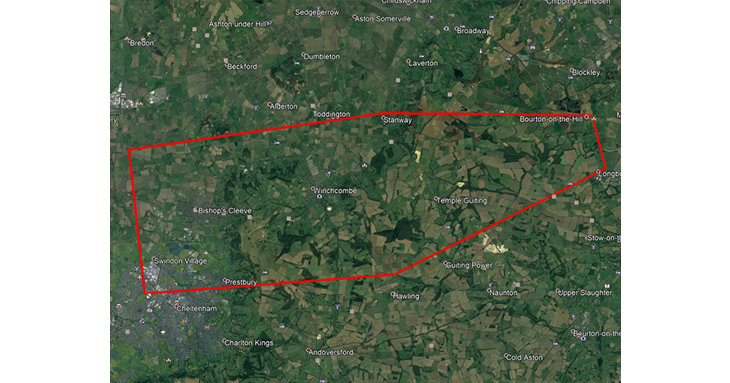Cheltenham locals may discover some extra-terrestrial material while out on their daily walk, after a record-breaking fireball was spotted soaring over Gloucestershire on the evening of Sunday 28 February 2021.
Recordings on six specialist cameras from the UK Fireball Alliance (UKFAll) show that the fireball was travelling at around 300,000 miles per hour – and may have dropped meteorites on and around Cheltenham, just north of the town towards Stow-on-the-Wold.
While most of the meteoroid vaporised in flight, scientists at UKFAll predict that a few pieces reached the ground and are likely to have landed on farmland. The organisation has released a map showing potential fall locations, which will be updated as the data is refined.
Dr Sarah McMullan of UKFAll said: ‘Even over a relatively small land area like the UK, about twenty meteorites probably land each year. Most are barely the size of a sugar cube. However, two or three are bigger, and that’s probably the case with this one.’
Locals are advised not to break lockdown rules to go meteorite hunting, but are encouraged to report to UKFAll if they find a fragment on a nearby road, their farm or property.
Anyone who stumbles across extra-terrestrial material is asked to photograph it in situ and make a note of the GPS location using their phone. The meteorite should then be picked up with a clean bag or aluminium foil, avoiding direct contact if possible. And most importantly: avoid touching it with a magnet!
The Gloucestershire fireball, which was caused by a piece of asteroid entering the earth’s atmosphere, is set to break a world record as the meteor to be most reported on via the International Meteor Organisation’s website.






.jpg?width=690&height=361&rmode=pad&bgcolor=ffffff&quality=85)






.png?width=432&height=227&rmode=pad&bgcolor=ffffff&quality=85)



